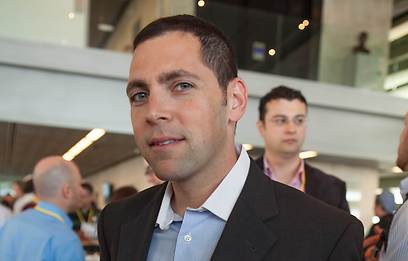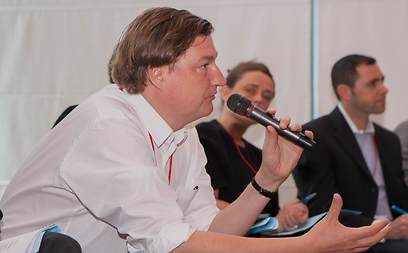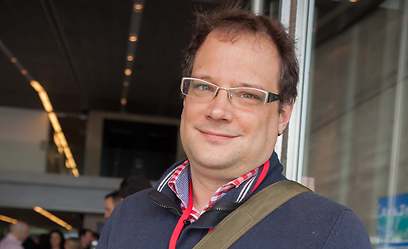
For German investors, Israeli startups are the future
At 'Axis Tel Aviv 2014', more than one German company is looking for an Israeli investment opportunity.
Israel and Germany are a good cultural fit, says Guy Horowitz, the head of the German communications giant Deutsche Telekom's Israel venturing office, and that makes the two nations good business partners.
Horowitz had turned out for the "Axis Tel Aviv 2014" event to connect international investors and Israeli startups. After Silicon Valley in the US, Israel is the number two country in terms of innovation, venture capital investment and the number of startups, Horowitz says. His company, one of the biggest European telecommunication companies, has been doing business with Israel for more than 20 years.
"I think in all business arrangements that we have with Israeli companies, seeing eye-to-eye and being open to the hardest points for discussion is very important for both of us," Horowitz says. Both are very much alike in terms of business respect, he enthuses. If something isn't working, neither side beats around the bush, but engages directly, to open up the problem and solve it.
The two partners learn from each other, Horowitz says. Germans learn implementation on the technology side and Israelis learn implementation of the project and delivery side, he says.
He admits that there's a risk associated with investing, especially in the early stages of a startup, so investors keep an eye on their relationships with the people to whom they give their money.
Foreign investors spend billions of money in Israel, and Germany is one of the most important economic partners for Israel.
Unlike Telekom, the Bertelsmann Digital Media Investment (BDMI) has not yet invested in an Israeli company. But Jan Borgstädt, head of European ventures at BDMI, says that although the company has been active in North America and Europe, Israel is extremely attractive due to the high number of technology companies that grow up here.
For the past few years, BDMI has been investing in an Israeli fund called “Lool Ventures”, which spends money on Israeli startups. Since then, the company has been watching Lool's portfolio, taking part in conferences in Israel and looking for a firm that could interest them. According to Borgstädt, BDMI has noticed that there are many solid entrepreneurs in Israel, who understand how to advance technologies and make them market-ready.
"Axis Tel Aviv 2014", the conference that brought them together last week, included a two-day organized event to connect investors with startups. Investors from 16 different countries took a closer look at 24 Israeli startups pitching their company.
”There is no doubt that there is innovation happening in Silicon Valley,” Guy Horowitz says, but getting Americans to care about Europe, Germany and Telekom is a challenge. In contrast, Israeli companies care more about doing business with Germany, he says. “We need to be here and have a strong presence.”
Israel has a lot of advantages for investors, according to Holger Wagner, senior investment manager of T-Venture, the venture arm of Deutsche Telekom. ”You find very well-educated people, and Israel has no market,” Wagner says. This means that entrepreneurs have to go abroad to launch their solutions on the market. ”In Israel they can’t because they have little trade with the countries around, so they need someone with whom they can realize a go-to-market based on partnership”, he explains.
In recent years Israel has been doing more and more business with Germany, Horowitz says. Overall, Deutsche Telekom has a budget of more than 400 million euros to invest; in Israel they have invested in 13 startups, and intend to keep spending more money.
People in Israel are much more driven to work as entrepreneurs because they find it less attractive to be in an employed role, says Wagner of T-Venture. In Germany, the big enterprises pay well, so people aren’t as driven to bear the risk of becoming self-employed.
Ed Frank, founder of Axis Innovation, cites the example of Deutsche Telekom CEO Timotheus Höttges, who said last month that he comes to Israel every quarter to see new technologies.
It's very refreshing, Frank says, for German business people to see what Israeli companies have.
“They could develop technologies in Germany, but they realize that they need people who think a little bit out of the box", he says, "I think the Germans don’t think so much out of the box.”













